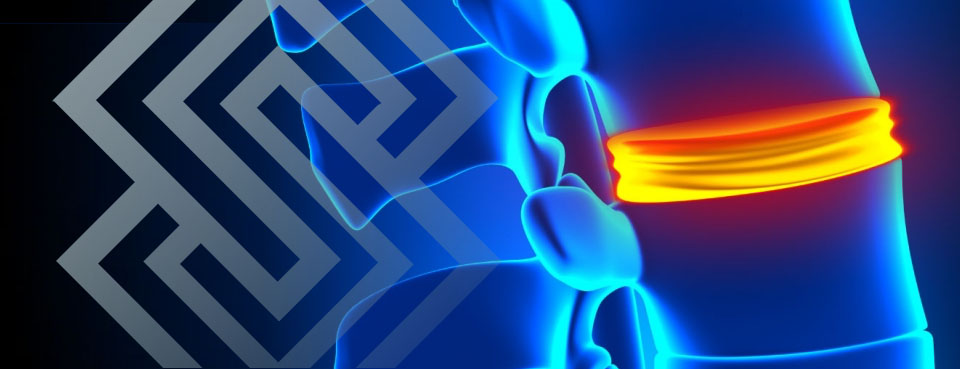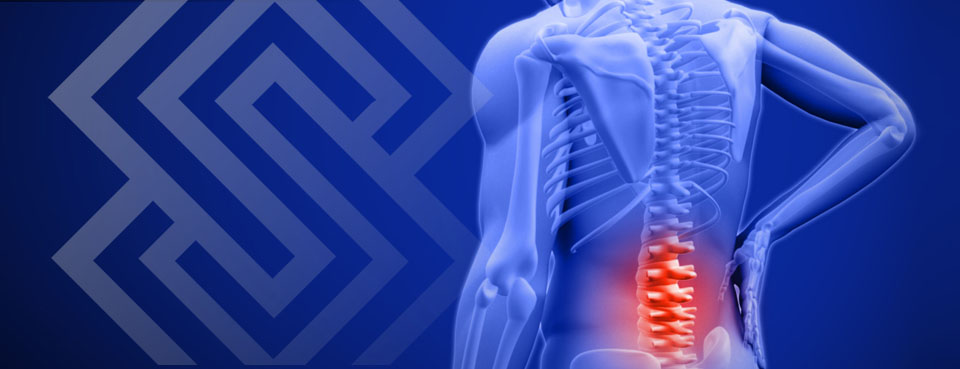Failed Back Surgery Syndrome
Failed back surgery syndrome is a generalized term that is often used to describe a collection of disorders suffered by patients who have not had a successful outcomes from spine surgery and continue to experience pain.Failed Back Surgery Syndrome Causes • Incorrect Diagnosis
An injury that is the likely cause of pain should be identified prior to surgery or spine surgery rather than after. One reason back surgeries may not be effective is because the injury that was operated on is not the actual cause of pain.
• Failure of Solid Fusion After Spine Surgery
If solid fusion is not achieved after spine surgery, but the hardware is intact and there is acceptable spinal stability, the patient may still achieve effective pain relief with additional surgery. In many cases, achieving spinal stability alone is more important than obtaining a solid fusion from the spine surgery.
On imaging studies it can be difficult to determine if a spine has fused and even harder to discover if a further fusion surgery is required. In general, it takes at least three months and up to a year to achieve solid spinal fusion after surgery. Therefore, one year must usually pass before a second surgery is considered. Only in cases where there has been displacement of spinal hardware and there is a failure of the spinal construct will back surgery be considered earlier.
• Implant Failure in Spine Surgery
A fusion can fail if there is not enough support to hold the spine while it is fusing. Spinal hardware may be used as an splint to hold the spine together while it fuses after surgery. Like any other object constructed of metal, the implant can fatigue and break apart. Fusing must occur before failure of the implant from metal fatigue.
Hardware or implant failure early after back surgery may indicate continued severe spinal instability. The heavier a patient is and the more vertebrae that are fused, the higher the likelihood of hardware failures.
• Transfer Lesion to Another Level after a Spine Fusion
Patients can have recurrent pain several years after fusion surgery. This can occur because the vertebrae above or below a fused segment can break down for the same reason or reasons that effected the first disc that required surgery. This progressive degeneration is most likely to happen after a two-level fusion in a 30 to 50 year old patient.
• Lumbar Decompression Back Surgery Failure
The nerve root can take a great deal of time to heal from a lumbar decompression surgical procedure such as a discectomy, microdiscectomy or laminectomy), making it difficult to evaluate the outcome of the surgery until well after the surgery has been performed.
If a patient is experience progress and reduced pain levels within the first three months after surgery they should continue to get better. Without improvement in pain reduction after three months after decompression surgery it is entirely reasonable to assume that surgery has been unsuccessful and determine a subsequent course of treatment.
• Lumbar Microdiscectomy
Decompression of lumbar spine vertebrae usually relieves leg pain immediately after surgery. 10% to 20% of patients continue to experience pain until nerves heal. Pain may actually be worse for a period of time after surgery due to operating around the nerve root causing inflammation.
It can take up to a year for symptoms of numbness, tingling or weakness to resolve or subside to a comfortable level after surgery. If these symptoms remain after a year, they probably indicate permanent nerve damage and may be permanent.
• Recurrent Stenosis or Herniation after Decompression
Lumbar stenosis can reoccur years after decompression surgery (lumbar laminectomy) at the same level, or a new level can become stenotic and cause back pain or leg pain. Pain that is relieved immediately after surgery but returns abruptly later is often due to a recurrent lumbar disc herniation. This can happen to about 5% to 10% of patients and are most likely to occur within three months after surgery.
• Technical Problems after Lumbar Decompression Surgery
Potential problems that can cause pain include:
1) A missed fragment of the disc or bone is still pinching the nerve.
2) The surgery operation was conducted at the wrong level of the spine.
3) Dissection of the nerve root has caused additional trauma.
Nerve damage during a discectomy or a lumbar decompression is extremely uncommon, only being reported in approximately 1 in 1,000 cases. When it occurs a permanent neurological deficit with new weakness in a muscle group is possible, and a postoperative EMG can be helpful to see if there has been nerve damage and if there is any reinnervation (nerve healing) after surgery.
Occasionally, decompressing a nerve root can cause it to become inflamed and lead to temporarily pain until the inflammation resolves.
• Inadequate Decompression of a Nerve Root after Surgery
Decompressing a nerve root is not always successful, and if a portion of the nerve root is still pinched there can be unresolved pain. If this occurs, there will usually be no initial pain relief following surgery and subsequent postoperative imaging studies may show continued spinal stenosis in lumbar segments of the spine.
• Formation of Scar Tissue after Back Surgery
Scar tissue formation is a normal part of the healing process after surgery. While scar tissue can cause pain, actual pain from scar tissue is very rare since the tissue usually contains no nerve endings. The principal mechanism of pain is thought to be the binding of the lumbar nerve root by fibrous adhesions. Stretching exercises can help decrease the binding effects of scarring around the nerve root.
Notice:
This advertisement has been provided for informational purposes only and should not be used as a substitute for medical treatment or an actual diagnosis. If you are experiencing pain that may be associated with back or neck disorders you should seek the care of a doctor as soon as possible or immediately if your symptoms are accompanied by incontinence / loss of bladder or bowel control, as these may be signs of life threatening condition.

